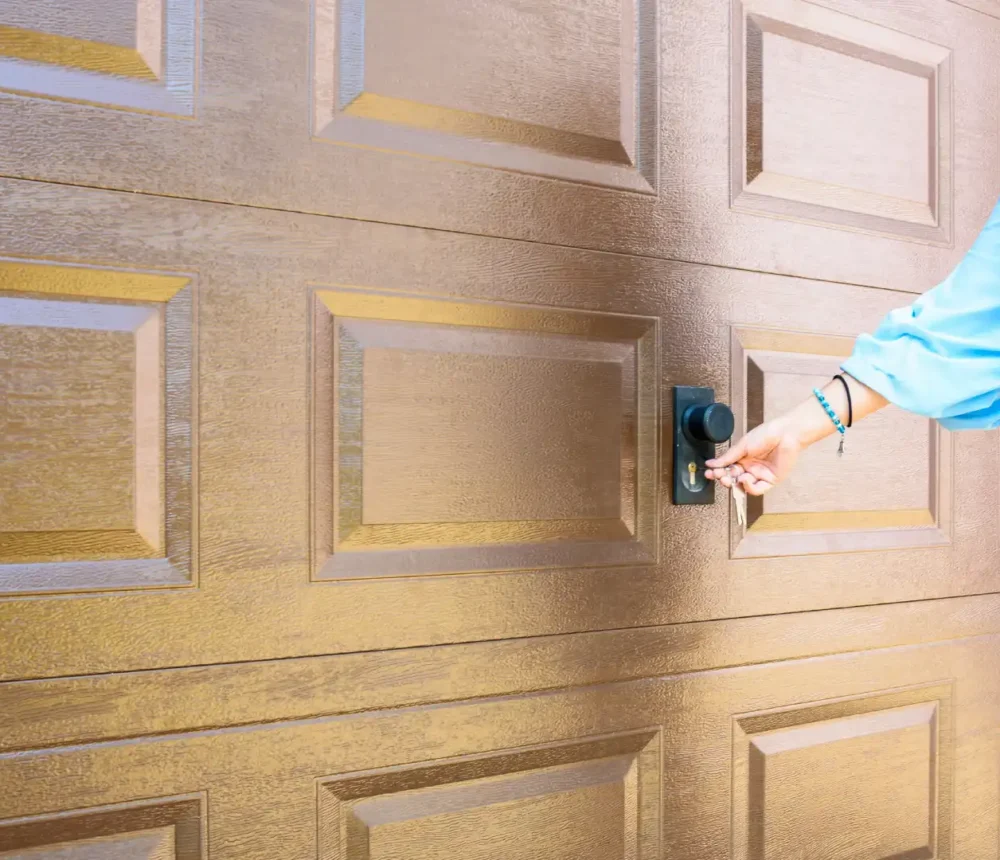Our garages often house valuable possessions, from cars and bikes to tools and equipment. So, ensuring they’re properly secured is vital. But unlike our front doors, garage doors come in various styles, and their locking mechanisms can differ. Let’s delve into the world of garage door locks and explore how each type keeps your belongings safe.
Do All Garage Doors Have Lock Barrels?
The short answer is no. While some garage doors do utilise a traditional lock barrel with a key, others rely on different mechanisms for security. The type of lock used depends on the design and operation of the garage door itself.
Common Garage Door Types and Their Locking Systems:
-
Up and Over Doors: These classic hinged doors are a popular choice in the UK. They typically have a T-shaped handle lock on the inside. This lock uses a unique, non-standard key that cannot be easily replicated. Some up and over doors may also have a secondary deadbolt lock for added security. This is a separate lock requiring its own key and throws a bolt deep into the frame for a stronger hold.
-
Roller Doors: These roll vertically upwards and often have an electric motor for operation. The locking mechanism here is usually integrated into the motor unit. It can be a simple switch that activates when the door reaches its closed position, or a more sophisticated system with a key fob or keypad for electronic unlocking.
-
Sectional Overhead Doors: These doors consist of horizontal panels that slide up along tracks. Similar to roller doors, their locking mechanism can be integrated with the opener motor. It might be a simple automatic deadbolt that engages when the door closes, or a more advanced system with keypad or remote access.
-
Side-Opening Garage Doors: These function similarly to a regular hinged door but on a larger scale. They often have a standard Euro cylinder lock similar to what you’d find on your front door. This lock uses a more common key design and offers good security. Some side-opening garage doors might also have additional deadbolt locks for enhanced protection.
-
Tilt-Up Garage Doors: Less common in residential settings, these doors hinge at the bottom and pivot upwards for opening. Their locking system can vary, but it often involves a padlock hooked onto a bracket on the door and the frame. Some tilt-up doors might also have hasps and staples for added security.
Additional Security Considerations:
-
Garage Door Defenders: These are metal plates installed around the lock area to make it more difficult for intruders to tamper with the mechanism.
-
Automatic Locking: Some garage door openers offer an automatic locking feature. This engages the lock automatically after the door closes, eliminating the need to manually lock it each time.
-
Smart Locks: Technology is making its way into garage doors too. Smart locks allow you to control the door remotely through an app on your smartphone or with voice commands.
Choosing the Right Lock for Your Garage Door:
The best lock for your garage door depends on several factors:
- Door type: As we’ve seen, different door styles have different locking mechanisms.
- Security needs: If your garage houses valuables, a more robust lock like a deadbolt or a high-security roller door system might be necessary.
- Convenience: Electronic locks and smart locks offer greater ease of use, but they might not be suitable for everyone.
- Budget: More sophisticated locking systems tend to be more expensive.
Remember: Regardless of the lock type, ensure it’s in good working condition. Replace worn-out keys or fobs, and consider upgrading to a more secure system if your current one feels inadequate.
By understanding the different types of garage door locks and their functionalities, you can make an informed decision to best secure your garage and its contents.

